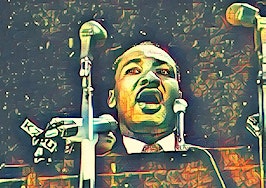Robert Toll, the co-founder and former Chief Executive Officer of Toll Brothers, one of the nation’s largest luxury home builders, died on Friday in New York following a struggle with Parkinson’s Disease, the company announced. He was 81.
Born in 1940 in the suburbs of Philadelphia, Toll founded the company in 1967 with his brother Bruce Toll after finding himself deeply dissatisfied with his legal career. Toll graduated from University of Pennsylvania Law School in the mid-1960’s to satisfy his parents, according to the Wall Street Journal.
“One of the happiest days of my life was when Bob quit the practice of law and we joined together to start Toll Brothers, building what has become such a great company,” Bruce Toll said in a statement.
The Toll Brothers started out building colonial-style homes in the Philadelphia suburbs, starting with two model homes, which ended up getting them contracts to build 20 more.
The first homes were priced around $17,500, until their father Albert Toll — who bought deeply discounted real estate bonds and owned apartment buildings during the depression — advised them to build more luxurious models that could sell for around $25,000 in Bucks County, Pennsylvania, according to the Journal.
The company gradually expanded from the Northeast to the West Coast, the Southeast, Texas, and other regions before going public on the New York Stock Exchange in 1986. More than 150,000 families currently live in a Toll Brothers home, according to the company’s own metrics.
Toll served as the company’s chairman and CEO until 2010, and maintained a steadfast belief that it was a kitchen, master bedroom suite and luxurious bathroom that sold a house. He was known for keeping a pitchfork in the corner of his office that he would sometimes point to during meetings to remind people to be cautious when buying land.
“We didn’t want that pitchfork stuck in our rear end,” Douglas C. Yearley Jr., the current CEO of Toll Brothers told the Journal.
Toll, who has an estimated net worth of $1.1 billion, according to Forbes, used the Socratic method during meetings and advised his managers not to travel on Mondays so that they could discuss weekend sales and pricing. The Monday meetings would often keep Toll in the office past midnight, Yearly told the publication.
Like many developers, Toll failed to foresee the dramatic drop off in housing prices that began in 2006 when the housing bubble began to burst following the doubling of housing prices in some parts of the country. The company fared better than many others during the housing crisis thanks in part to its firm financial footing and focus on luxury homes.
















